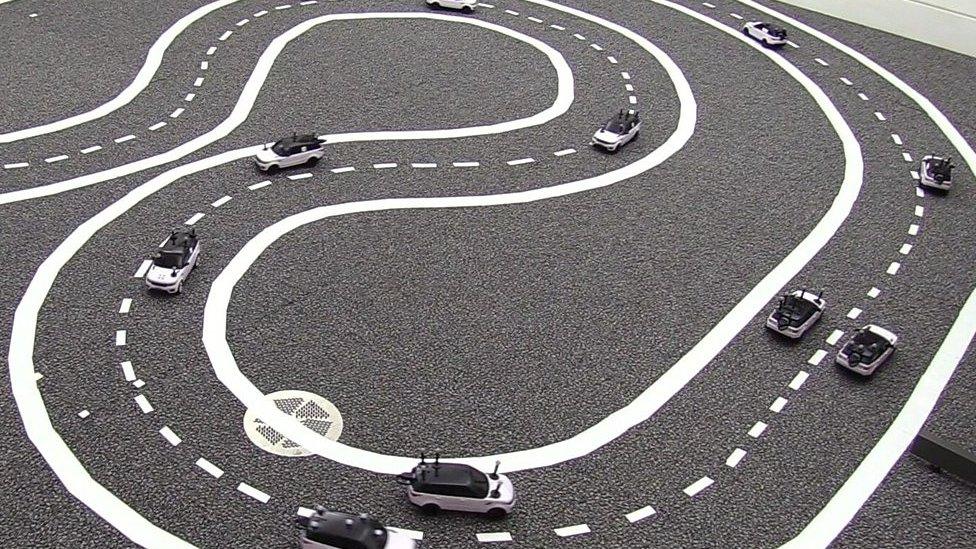Cambridge congestion charge backed by 'third' of commuters
- Published
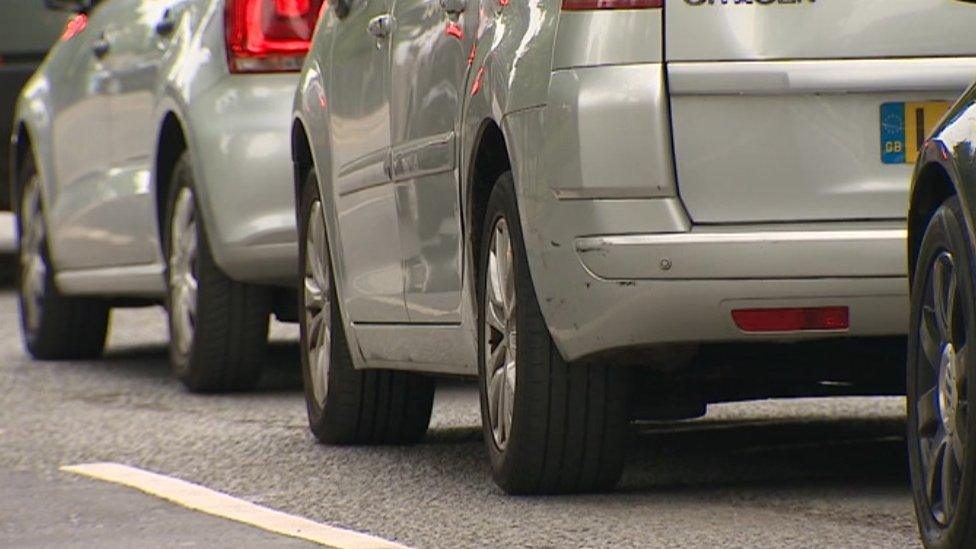
Traffic jams are par for the course for Cambridge commuters
A congestion charge to end gridlock on Cambridge's roads was backed by about a third of commuters in a questionnaire.
Five thousand people took part in the month-long survey, external organised by the Greater Cambridge Partnership (GCP).
Other ideas included increasing parking charges and taxing both company parking spaces and highly polluting vehicles.
But campaigners said a congestion charge should be linked to investment in public transport and not be a "stick to beat motorists with".
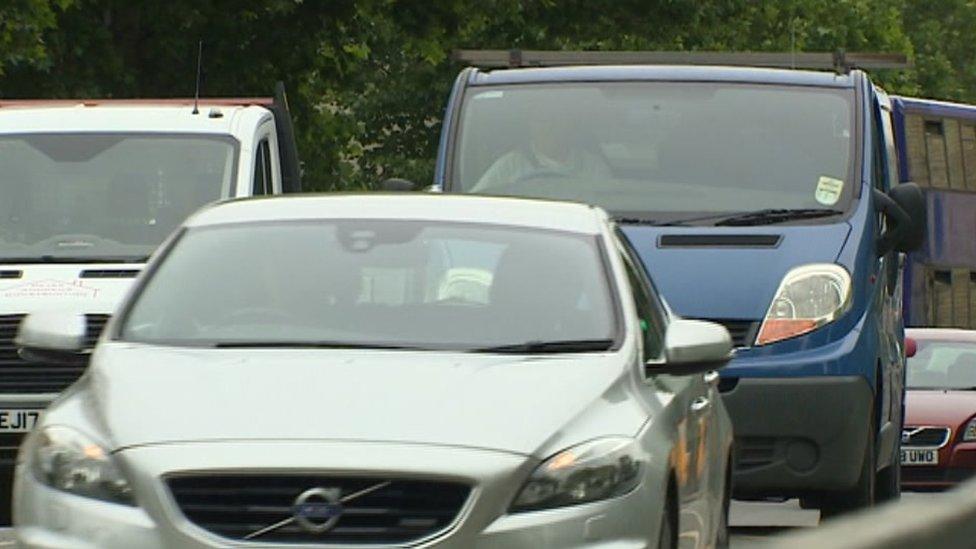
More than 5,000 people gave feedback on transport options during the consultation
The consultation, called Choices for Better Journeys, was run by the GCP in February and March.
The local body chooses how to spend government money, external on infrastructure in Cambridge and the surrounding area.
Commuters were asked to respond to various options put forward by the partnership, which aims to cut congestion by 25%.
Research by the GCP showed that a quarter of all commuting time was spent in traffic jams and that 100,000 vehicles a day used the city's roads.
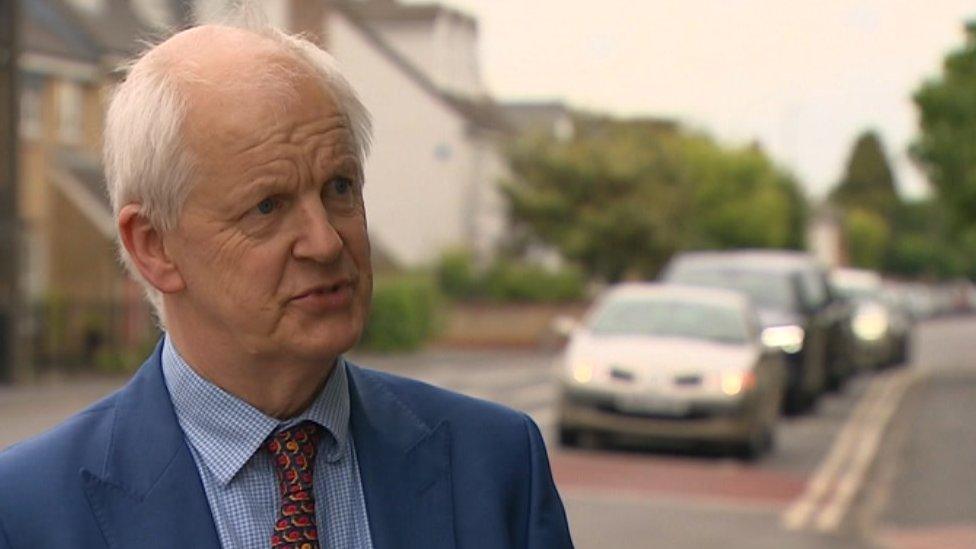
Lewis Herbert said traffic congestion must be tackled
Lewis Herbert, chair of the GCP, said a flexible and intelligent solution was needed.
"It is a horrible experience for people because they are stuck in traffic or they are breathing in air pollution," he said.
If approved, the Cambridge congestion charge would operate only at peak times, and, while no price has been fixed, it could cost drivers between £1 and £10.
The decision on which of the options should be taken up is due to be made by the GCP by the end of the year.
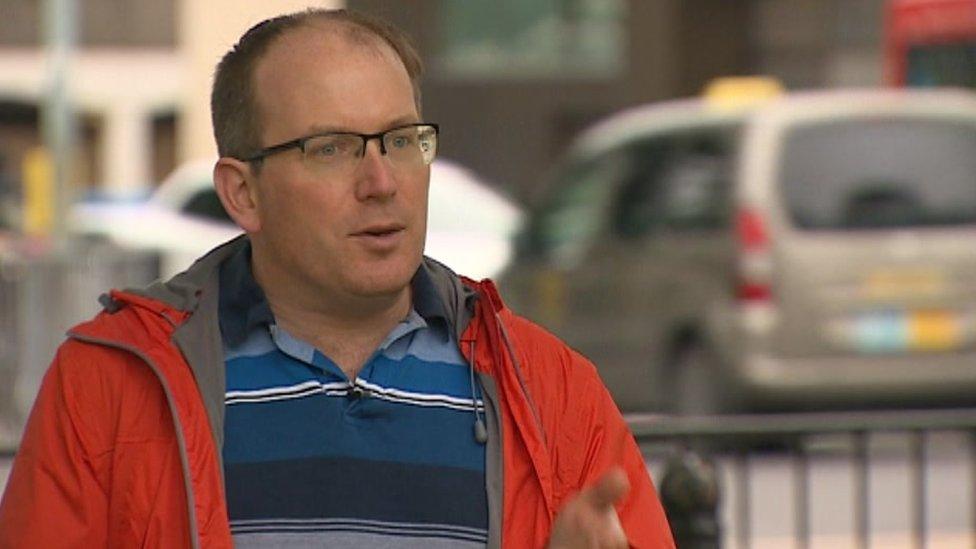
Campaigner Mike Prior-Jones wants improvements to public transport
Mike Prior-Jones, cycling campaigner, said a congestion charge would cut traffic, but felt profits should be invested immediately in public transport.
"Motorists won't accept the congestion charge if they just see it as a stick they are being beaten with," he told BBC Sunday Politics East.
"You need to provide people with a real alternative."
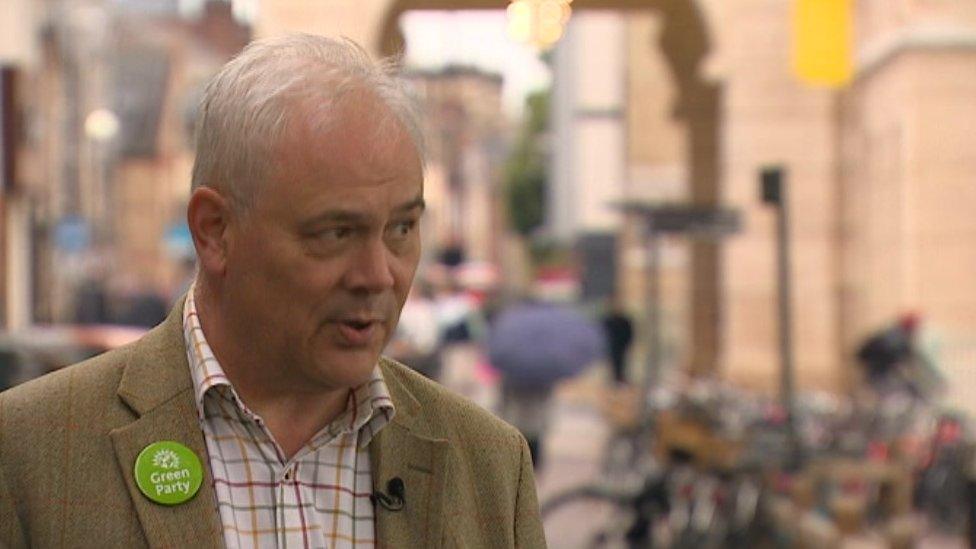
Jeremy Caddick, from the Green Party, said congestion charging should be fair to all motorists
Jeremy Caddick, from Cambridge Green Party, said charges should be fair and should not disadvantage those forced to live outside the city by high house prices.
Watch more on this story on Sunday Politics East, on BBC One on Sunday at 12:00.
- Published7 April 2019
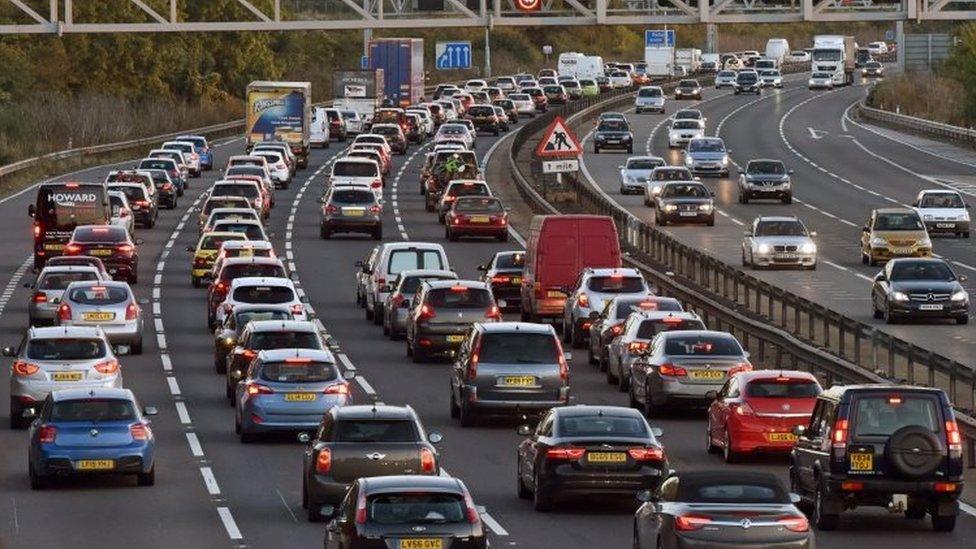
- Published21 May 2019
